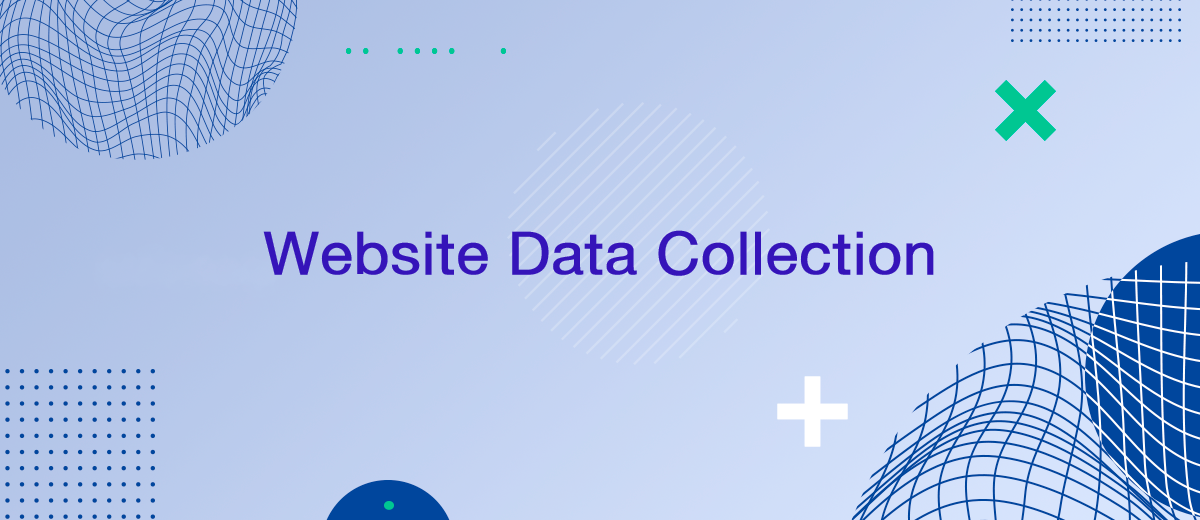Understanding website data collection is both easy and hard. Depends on how you want to look at it. If you want to go all deep and technical, then it might get very complicated very quickly. The good news is that the technical part is for the professionals who get paid to know all about it.
For the rest of us, who are more concerned with how to use web data collection for business benefits, getting the hang of it does not require any prior tech skills. And it is more than worthwhile to learn to tackle the goldmine of organically generated data commonly known as the Internet.
Defining Website Data Collection
Website data refers to all the information that is available in public online sources. These sources might be anything from governmental archives to popular websites of any kind.
Website data collection is the process of gathering such information from the web. Usually, complex automated tools assist in such data collection procedures and analysis of the collected data. The more data you want to collect or the better it is protected, the more advanced your technology will have to be.
The Purpose and Benefits of Collecting Web Data
Companies turn to website data collection to acquire actionable insights that help them with everything from developing the product to identifying the competition. Hedge funds also employ large-scale data collection to build investment models and improve decision-making.

The following benefits make web data collection especially attractive and useful for businesses.
- It is fast. There is no other way to get so much information in such a short period of time as with online data collection. Advanced data collection tools are capable of gathering information from the web in real-time. This allows companies to get valuable insights when they matter the most – right now.
- It is cheap. Imagine having to physically visit every competing shop to get the prices of specific products. That takes resources and, depending on the size of your competitor base, might not even be an option. Now imagine not having to leave the office to get all that information and much more. That is website data collection.
- Everything is online. The versatility of online public sources is simply unmatched. Whatever the purpose of your data collection, you can rest assured that you will find some relevant information on the web.
- Everyone is online. You can reach your customers easily with simple online communication methods. Either their direct feedback or online behavior data can tell you a lot about improving your product and procedures.
And, of course, there are innumerable benefits of online data when it comes to specific use cases. All pivotal business procedures, from lead generation to customer support, can be boosted and improved with the data from the web.
The Main Method of Collecting Data from Online Sources
Web scraping is the main website data collection method. This is the process of using a special software tool known as a web scraper to go through the websites of your choice and automatically extract information from them.
Web scraper extracts raw and unstructured data from the websites, usually in HTML format. The data is then structured and made available in some databases for further usage. Structured web data is applicable in various ways and can be made accessible by different tools.
The term web scraping is sometimes mistakenly used interchangeably with another term – web crawling. These are, however, different, although related processes.
- Web crawling refers to the process of systematically going through web pages and indexing them by collecting hyperlinks. It is done by a software tool known as a web crawler or web spider that creates a list of links to the sites it visits.
- Web scraping is the actual data collection from websites. Web scrapers utilize the lists created by web crawlers. Thus, web scraping builds on web crawling to deliver the final data sets to offline databases.
Basic web scrapers are quite easy to program. Additionally, there are companies offering no-code web scraping services. However, it takes more advanced web scrapers and additional software to bypass all the restrictions put forward by various websites to keep their data behind bars.
What can You Scrape from the Web?
Anything. In short, all kinds of data can be extracted from websites. For example, you can scrape:
- Ticket prices,
- Transport and hospitality service information,
- Online retail data,
- Historical financial data,
- Real estate listings,
- E-commerce product lists,
- Online job postings,
- Reviews of any and all kinds,
- News websites.
The list could go on forever, but these examples should be enough to show that web scraping has limitless use cases and applications, especially when it comes to business.
Other Methods of Gathering Information over the Net
Website data collection, aside from web scraping, also includes various methods of online interactions that generate new datasets. Additionally, there are numerous ways of tracking online behavior to collect data. Here are some examples.
A/B testing
Conversion rate optimization (CRO) includes various methods to make sure that everything on your website is tuned perfectly to turn visitors into customers. One of the most important methods of CRO is A/B testing. Generally, it refers to diverting your website traffic to two different versions to test which works better. You can test anything from wording to images to special offers this way.
- Automate the work with leads from the Facebook advertising account
- Empower with integrations and instant transfer of leads
- Don't spend money on developers or integrators
- Save time by automating routine tasks
All this testing generates a lot of new data that is relevant specifically to your product. Thus, web data collection can be kickstarted by your own procedures of trying out new ideas.
Heatmaps
Heatmaps are software tools that show you exactly how visitors behave on your website or specific webpage, for example, an advertisement that you put out. Looking at the heatmaps, you are able to tell what works and what does not, and stipulate what sort of changes need to be made.
Online surveying
The classical way of getting answers that will never go out of fashion is simply asking. The internet enables you to reach people all over the world and ask them questions in various forms. Your website, e-mails, social media, and partner webpages can all be used for online surveying. This is another method of website data collection that enables you to get unique insights that are relevant precisely to your goals.
What Else do you Need to Know?
Website data collection is not illegal. At least as long as you concentrate on public sources, you are simply harvesting information that is available to everyone. Having that said, you should be careful as to what you collect. Data that is private or protected by copyright laws should not be stored or made public without explicit permission by legal owners of the rights to said data.
Web scraping, the process of extracting data from websites, falls into a legal gray area. Its legality can depend on a few key factors:
- Terms of Service: Websites often have Terms of Service that users implicitly agree to when using the site. Some of these terms may prohibit web scraping. Violating these terms could potentially lead to legal action, although such cases are relatively rare and often depend on the jurisdiction and the specifics of the situation.
- Copyright Law: If the data being scraped is subject to copyright (which it often is), then copying it could potentially be a violation of copyright law. However, this depends on the jurisdiction and the specific nature of the data and use.
- Data Privacy Laws: With the introduction of data privacy laws like GDPR in Europe and CCPA in California, scraping personal data can be illegal if it violates these laws.
- Computer Fraud and Abuse Act (CFAA): In the United States, scraping can potentially be considered illegal under the CFAA, which prohibits accessing a computer system without authorization.
However, it's important to note that the specific laws and regulations can vary by country and the specific circumstances of the scraping. It's always recommended to consult with a legal professional if you have specific concerns about web scraping and its legality in your specific context.
Furthermore, websites use firewalls and other technical hurdles to protect the information they have from being scraped. Thus, even legal web scraping is challenged by various technical hurdles. Thus, website data collection requires skill if you want to do it on a large scale.
If you are not sure whether you can conduct web scraping safely on your own, there are plenty of service providers to do it for you. And online data generation through testing and surveying are methods available to most businesses that you should definitely take advantage of.
Use the SaveMyLeads service to improve the speed and quality of your Facebook lead processing. You do not need to regularly check the advertising account and download the CSV file. Get leads quickly and in a convenient format. Using the SML online connector, you can set up automatic transfer of leads from Facebook to various services: CRM systems, instant messengers, task managers, email services, etc. Automate the data transfer process, save time and improve customer service.

